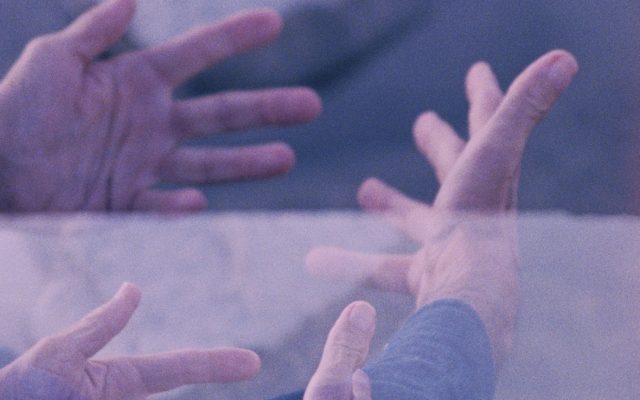Ste. Anne

In-house screening captioned for d/Deaf and Hard of Hearing viewers
Optional SDH captions available for online screening
Set and shot in Treaty 1 territory in Vermette’s native Manitoba, the film’s narrative centres on a long-missing young woman’s unexpected return to her indigenous Métis community. Shot over the course of 14 months, incorporating scripted and improvised elements, Ste. Anne is as much a fragmentary portrait of the seasons as it is about the people whose lives are dictated in part by nature’s flow.
Of the film, Director Rhayne Vermette has said: “Ste. Anne was a project placed at the centre of a dense cosmology of effects which includes family histories and myths, disconnected visions, a narrative influence of my favourite film, improvisations on the land with non-actors, and a figurative contemplation on the Métis Nation. Reflecting on the stories we assert onto land, a cinematic collage of circular narratives explores themes of surveying, industrial methodologies, the divine, and physical manifestations of space.”
“Refracting the beauty of Treaty 1, Ste. Anne traces an astral geography between myself and my family, in particular my father. Threads of the familial and personal extend themselves deep throughout the project, and these bonds are what supported the film – which was essentially the result of a collective leap of faith into a very slow and fragmented process of filmmaking. On screen, you will find my father, my mother, my brother, my godfather, my cousins, my aunts and uncles, and my niece – all scattered throughout, often in the frame alongside me (Renée). Meanwhile, non-actors and crew who rounded out our cinematic family were also heavily immersed into our film’s world through a kinship which evolved over our meditative unraveling of the story (highlighting over 2 years in production).”
Rhayne Vermette was born in Notre Dame de Lourdes, Manitoba. It was while studying architecture at the University of Manitoba, that she fell into the practices of image making and storytelling. Primarily self taught, Rhayne’s films are opulent collages of fiction, animation, documentary, reenactments and divine interruption. Ste. Anne is her first feature narrative.
2021, Canada, 80mins
Directed by Rhayne Vermette
French & English, with English & SDH subtitles
Tickets available on a pay-what-you-can sliding scale:
£5 / £3.50 / £2 / Free
Watch at Cample:
Sunday 29 May, 7pm
Watch Online:
29 May - 5 June
Face Coverings
Please note that in line with Scottish Government restrictions it is currently mandatory to wear a face covering when attending one of our in-house screenings, although there are exemptions for certain people and it is a reasonable excuse to remove a face covering when you need to eat and drink
Seating
Seating will be arranged to allow for distancing of 2m between groups. Please notify us if you have booked as part of a household or extended household, and we will arrange to seat you together
Track & Trace
Prior to entry, we will ask for contact details for one person per booking, including a telephone number, for the purposes of Track & Trace
We will retain these securely for 21 days from the time of your visit
Click here for more information about visiting our building and the measures we have in place
Enjoyed the film? Please consider making a donation to support CAMPLE LINE
If you attend this screening, either online or in-person, we’d appreciate if you could fill in this short audience survey
Introduction by Métis Curator Jennifer Smith
Watch an introduction to Rhayne Vermette’s ‘Ste. Anne’ by Jennifer Smith – a Métis curator, writer and arts administrator from treaty 1 territory, today called Winnipeg, Canada.
Of the film, Jennifer says “The moments I have felt the most intimate with are the long shots of Renee out on the land reflecting. These shot celebrate the land the film was shot on, and celebrate the land Renee loves. It shows how land can be healing in the fact that this is what Renee does when she needs time away from a difficult situation, and the shots give us space as an audience the reflect and just spend time with the film instead of consuming the film.”
Supported by Film Hub Scotland, part of the BFI’s Film Audience Network, and funded by Screen Scotland and National Lottery funding from the BFI


